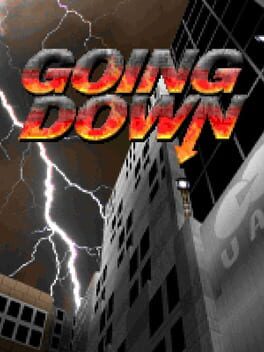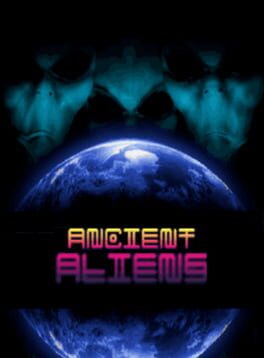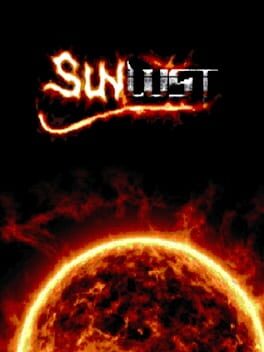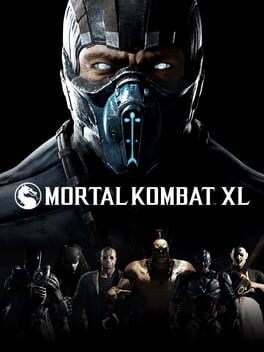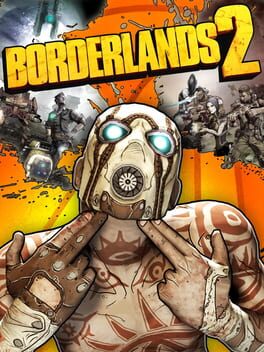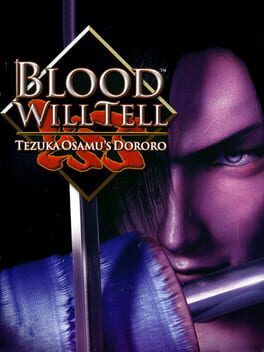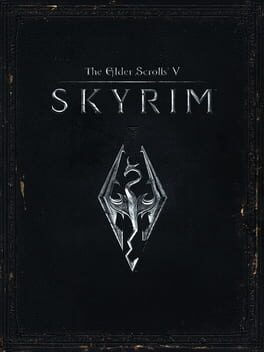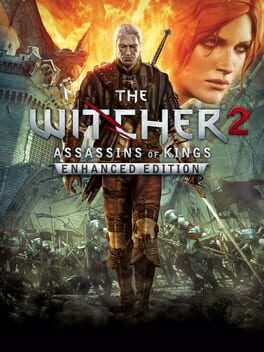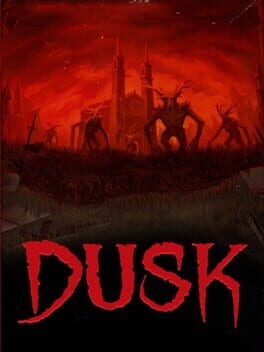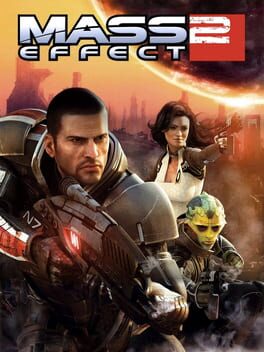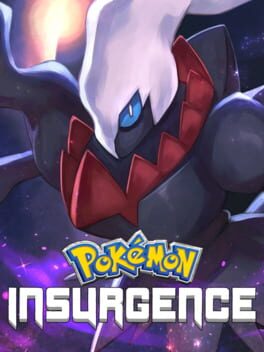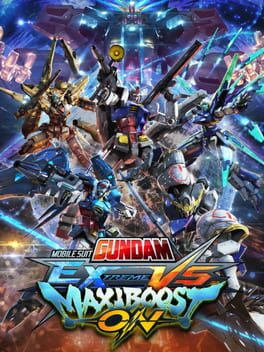2014
I was tweaking when I had this at 3 stars. Unironically a kafkaesque comedy of errors, wholesomely committed to painting Doomguy as the "aw, shucks :(" down-on-his-luck Everyman who is able to sustain this weird, hostile world through determination and ingenuity. Encounter design is A-1, a return to the frantic, claustrophobic combat design of retro WAD culture over modern WAD's slaughter-tendencies--even Barons became threatening when you have no room to run. Thoroughly meticulous in environmental design too--there's a skeleton in the closet joke that I didn't even realize until I was watching a YT playthrough. So goofy, yet so earnest! One of my favorites that will probably become an annual revisit.
2016
skillsaw can't fool me. Ancient Aliens (the doom wad) isn't a parody of Ancient Aliens (the history channel show), but is actually a complimentary vibe piece to the oft-forgotten VICE TV show Action Bronson Watches Ancient Aliens. Anyone who has watched the somehow-still-running History channel show can tell you how surprisingly boring it is. The stuffy safe-for-8th-grade documentary style is a bad juxtaposition to the literal head-empty premise of extraterrestrials being behind some of the world's greatest wonders. What the show is good for, as both Action Bronson and skillsaw have figured out, is serving as background-noise and aesthetic inspiration for a smoke session. "Damn, you're telling me E.T. built this bitch?" is a lot more engaging when you're already kinda tweaking.
So it's only fitting then that the first level in this parody would have Doomguy walk up to a vaguely ancient temple-esque entrance, pick up a pipe of peyote, smoke it, and then be teleported by spirit wolves to incoming Cyberdemon rockets. From here till the finale, skillsaw never lets up on the smoked-out loced-out buffoonery, with every level he designs offering some twisted gimmick or bizarre architecture. MAP16, "Leave Your Sol Behind", centers around an ascending light bridge that leads inside a literal spaceship, which bolts you to some delightfully cliche lava and ice worlds, on some Super Mario Galaxy shit. MAP18, "Illuminati Revealed" is a chaotic slaughter map with a giant pyramid broadcasting a spinning Illuminati icon, with the spinning Illuminati icon gradually clouded out by a swarm of endless Cacodemons. MAP 28 "Floating Arena" is an aptly named island that will have you circle strafing on the literal boundaries of the level to corral the brutal crowding at the start of the level. The total irreverence and creativity shown by skillsaw here posterizes the TV show way harder than any academic counterargument--who gives a shit about the conspiratorial implications of antediluvian visitors when you have mood pieces like MAP24's "Culture Shock"? If extraterrestials inadvertly inspires stuff like this, they should come around more often.
If the map design of skillsaw went unhinged, it's somewhat surprising that skillsaw's gameplay design is more subdued. Unlike Valiant, skillsaw isn't interested in changing any major parts of the DOOM formula--there are only two new enemies, one grounded and one vertical, and they are both fragile glass-cannons who require similar prioritization. The somewhat-classical mechanics are spruced up with a smorgasbord of encounter design--Tyson, sniper, slaughter, trappy, and puzzle encounters all mesh together, albeit rarely in the same level. skillsaw is one of the premier 'modern' DOOM designers, so tight encounter-design is a given--the guest mappers throw in good contributions, though, save the aforementioned "Floating Arena", they lack the same 'punch' of skillsaw's maps. Perhaps skillsaw should've passed the pipe around more often!
So it's only fitting then that the first level in this parody would have Doomguy walk up to a vaguely ancient temple-esque entrance, pick up a pipe of peyote, smoke it, and then be teleported by spirit wolves to incoming Cyberdemon rockets. From here till the finale, skillsaw never lets up on the smoked-out loced-out buffoonery, with every level he designs offering some twisted gimmick or bizarre architecture. MAP16, "Leave Your Sol Behind", centers around an ascending light bridge that leads inside a literal spaceship, which bolts you to some delightfully cliche lava and ice worlds, on some Super Mario Galaxy shit. MAP18, "Illuminati Revealed" is a chaotic slaughter map with a giant pyramid broadcasting a spinning Illuminati icon, with the spinning Illuminati icon gradually clouded out by a swarm of endless Cacodemons. MAP 28 "Floating Arena" is an aptly named island that will have you circle strafing on the literal boundaries of the level to corral the brutal crowding at the start of the level. The total irreverence and creativity shown by skillsaw here posterizes the TV show way harder than any academic counterargument--who gives a shit about the conspiratorial implications of antediluvian visitors when you have mood pieces like MAP24's "Culture Shock"? If extraterrestials inadvertly inspires stuff like this, they should come around more often.
If the map design of skillsaw went unhinged, it's somewhat surprising that skillsaw's gameplay design is more subdued. Unlike Valiant, skillsaw isn't interested in changing any major parts of the DOOM formula--there are only two new enemies, one grounded and one vertical, and they are both fragile glass-cannons who require similar prioritization. The somewhat-classical mechanics are spruced up with a smorgasbord of encounter design--Tyson, sniper, slaughter, trappy, and puzzle encounters all mesh together, albeit rarely in the same level. skillsaw is one of the premier 'modern' DOOM designers, so tight encounter-design is a given--the guest mappers throw in good contributions, though, save the aforementioned "Floating Arena", they lack the same 'punch' of skillsaw's maps. Perhaps skillsaw should've passed the pipe around more often!
2015
A lonely, challenging experience. Of course most DOOM WADs don't have any other characters in them, very rarely deciding to sprinkle in marine corpses to signify someone was here, but Sunlust is such an oppressive experience that the lack of humanity of it all feels emotionally attuned to the level progression. Any notion of humanity left in Sunlust's world is actively malignant-- MAP29 for example, "Go Fuck Yourself", is uniquely human to the player in design, architecture, and title. The Archvile Carousel is too purposeless, too vexatious to be designed by any thing but a human. Yet, like with most challenge maps, it's made to be bested, but only by those willing to buy in and mortify themselves to gitting gud.
In fact, this idea of mortification, of purity through rigid self-discipline, is an idea that permeates not just in Sunlust but in the discourse of 'difficulty' in video games as a whole. For every new completion of Sunlust, there's a DOOMer out there who will remind you that you haven't really 'completed' Sunlust until you've done it with no savescumming, and there's a DOOMer above them that will remind you that only pistol start UV counts as completion, and so on and so on. Anyone who had the unfortunate luck to witness Souls "summoning discourse" can also attest to similar convos. It's eerily similar to where this mortification discourse actually comes from--Medieval Christianity. You aren't really free of sin until you've abstained from something important, until you've fasted, until you've lived ascetically, until you've self-flagellated, etc.
And while the merits and foibles of mortification are too big for this review, the takeaway shouldn't be to do away with the ideas of purity or self-discipline, but to take a more personal, existential approach to them. Play Sunlust, but don't feel the need to surrender to it's weight of difficulty or of being one of the GOAT WADs or anything else. noclip to admire the architecture, throw on godmode, try a UV run, make a save for the Cathedral fight to replay forever, do whatever--just make it challenging and purifying to you, and see where you land. ribbiks has said he views DOOM more as a canvas than a video game, and there's no reason you shouldn't too.
In fact, this idea of mortification, of purity through rigid self-discipline, is an idea that permeates not just in Sunlust but in the discourse of 'difficulty' in video games as a whole. For every new completion of Sunlust, there's a DOOMer out there who will remind you that you haven't really 'completed' Sunlust until you've done it with no savescumming, and there's a DOOMer above them that will remind you that only pistol start UV counts as completion, and so on and so on. Anyone who had the unfortunate luck to witness Souls "summoning discourse" can also attest to similar convos. It's eerily similar to where this mortification discourse actually comes from--Medieval Christianity. You aren't really free of sin until you've abstained from something important, until you've fasted, until you've lived ascetically, until you've self-flagellated, etc.
And while the merits and foibles of mortification are too big for this review, the takeaway shouldn't be to do away with the ideas of purity or self-discipline, but to take a more personal, existential approach to them. Play Sunlust, but don't feel the need to surrender to it's weight of difficulty or of being one of the GOAT WADs or anything else. noclip to admire the architecture, throw on godmode, try a UV run, make a save for the Cathedral fight to replay forever, do whatever--just make it challenging and purifying to you, and see where you land. ribbiks has said he views DOOM more as a canvas than a video game, and there's no reason you shouldn't too.
2005
I think Mikami understands to an unnatural degree that video games are fundamentally about problem-solving. Unlike an academic interpretation of "problem-solving" though, Mikami understands that the exercise of problem-solving is less about solving the actual problem but of learning new ways of thinking. Sure, other video games are problem-solving in a base sense, but Mikami's problems have that magical "Oh Shit" element to them; everyone who's done one playthrough of this game will instantly remember all three wolverine encounters, the first time they encountered Regenerators, the Krauser section, the entire 4-4 homestretch, etc. Consistent to all these amazing sections is that the game feels like it's adapting along with the player--as if Mikami was a math tutor guiding us along the workbook. "Ok you know how to deal with Wolverine now, but what if we stuck in you a locked cage with one of them? What if we put two of them in the same room? How would you adapt then?" You have to recontextualize and reinvent constantly, without forgetting the fundamentals that got you there. One of the fundamental pillars of a conservative mindset is the idea that change is risky--the problem might get worse if you approach in a new way, so it's safer to keep doing things the same way. RE4 looks at this mindset, kneecaps it, then gives it a head-exploding suplex--change is necessary, even if it is risky; use more of your resources, resupply, be more precise, exploit another weakness, or use a goddamn rocket launcher if you have to--just don't think the old way is the only way if you want to make it through. It's a constant escalation of gameplay, and that the narrative matches this escalation tit-for-tat is just aces. Literally one of the most radical games of all-time, in every sense of the word.
2016
2012
Fun Fact: The current cuckold meme was actually popularized out of hatred for Borderlands 2's writing staff. In some nonsensical eceleb drama saga, one of the writers Anthony Burch was found out to be an open relationship, and because it was 4chan circa 2013, Burch caught a lot of hate for 1) being in an open relationship and 2) not getting as much out of the open relationship (i.e. sex) as his partner. Which then lead to several users of 4chan's videogame board to dig deep and find out various awful things that's happened to him in his life. Eventually this led to the phrase "At least you aren't Anthony Burch", which then got reduced to shaming him for being a (un?)willing cuckold, which then got reduced to calling anyone who "tricks" themselves into being passive a cuck. (Like with most memes, the actual definition of a cuckold is not really the point here)
Alright not to get on my soapbox further but the Trails series is pretty much the anti-Rance, pretty unsurprising since both take a lot from Suikoden and the big ensemble casts manga that inspired Suikoden, yet Trails has ended up being less inventive than the porn game series. I'm not sure Trails has a moral high ground to stand on either, considering 1) the siscon and loli fetishism, which even Rance didn't stand for and 2) the unironic all-encompassing harem Rean assembles. At least Rance's harem ranges from genuine affection to Stockholm Syndrome to rape fantasies to Johnny Bravo ironies, Rean's harem ranges from "you fixed my life's problems, will you fuck me?" to "you're my step-brother, will you fuck me?".
There's also the fact that every entry in this series is like a 50+ hour investment, of which often only half or so of those hours are substantially saying anything or engaging combat systems in any new way. The finale of these things are often these great, grandiose segments in which Shit Blows Up Everywhere Forever, and I often wonder what's going in the writer's room where Trails can't just be like this all the time. There's ways in which you can keep the sort of small-town vibes of the early parts of these games and also not bore me to tears.
There's also the fact that every entry in this series is like a 50+ hour investment, of which often only half or so of those hours are substantially saying anything or engaging combat systems in any new way. The finale of these things are often these great, grandiose segments in which Shit Blows Up Everywhere Forever, and I often wonder what's going in the writer's room where Trails can't just be like this all the time. There's ways in which you can keep the sort of small-town vibes of the early parts of these games and also not bore me to tears.
Don't think I'll ever really understand what is it about the Witcher series which gets people to gush so hard about it; I guess because fantasy novels have gone by the way side, it can be a bit novel to the general public to have a fantasy story that deals with discrimination, alienation, classism, sexual violence, etc. in an explicit, non-gratuitous way. For me though, it always struck me as if the point of CDPR's Witcher interpretation was that it was a gritty fantasy story, and that was it, rather than the point being that the grittiness is necessary to embolden the themes in the work. Like, one of the main takeaways people have of this series is that life has a whole lot of gray, morality is ambiguous, and every decision we make carries far dire consequences than we can envision.
And it's like yea, no shit buddy that's how the world works lmao. Why do you think those 'simple' fantasy stories were created in the first place? I don't mean to be callous but it's a weird mental schema we have that people in the past were somehow not dealing with as complex lives and problems as we were, and that the solutions and narratives they created were somehow less 'complex' and 'realistic' than ours. You can see this especially with how some people decry medieval policy around executions as 'barbaric'; there's an argument for the sanctity of life, sure, not very compelling but its there.
But if you're going to make that argument, you also have to recognize the fact that political executions were a quick, effective fix to the problem of treason. You can't just expect traitors to just stop spreading their ideas once they've been defeated or caught; there's always a strong possibility that the values of the traitor spread across the region, and you now are no longer looking at treason but a revolution. You can see this particularly with the American South: the Southerners may have "lost", but the culture of anti-black sadism and rigid economic hierarchies has persisted until present-day, to the point where America is just now realizing how odd it is to openly display the Confederate flag. Not to engage in alt-history, but you have to ask yourself if antebellum Southern values would have persisted for so long if we executed all Confederates for high treason, instead of voting them into office.
But I'm digressing; aside from the on-paper plot the Witcher 2 is an interesting case-study of multi-narrative video games, and the fact that this game released with as many branching paths as it did is a minor miracle. Doesn't make the game any funner to play or the plot more insightful, but you have to admire CDPR's technical work.
And it's like yea, no shit buddy that's how the world works lmao. Why do you think those 'simple' fantasy stories were created in the first place? I don't mean to be callous but it's a weird mental schema we have that people in the past were somehow not dealing with as complex lives and problems as we were, and that the solutions and narratives they created were somehow less 'complex' and 'realistic' than ours. You can see this especially with how some people decry medieval policy around executions as 'barbaric'; there's an argument for the sanctity of life, sure, not very compelling but its there.
But if you're going to make that argument, you also have to recognize the fact that political executions were a quick, effective fix to the problem of treason. You can't just expect traitors to just stop spreading their ideas once they've been defeated or caught; there's always a strong possibility that the values of the traitor spread across the region, and you now are no longer looking at treason but a revolution. You can see this particularly with the American South: the Southerners may have "lost", but the culture of anti-black sadism and rigid economic hierarchies has persisted until present-day, to the point where America is just now realizing how odd it is to openly display the Confederate flag. Not to engage in alt-history, but you have to ask yourself if antebellum Southern values would have persisted for so long if we executed all Confederates for high treason, instead of voting them into office.
But I'm digressing; aside from the on-paper plot the Witcher 2 is an interesting case-study of multi-narrative video games, and the fact that this game released with as many branching paths as it did is a minor miracle. Doesn't make the game any funner to play or the plot more insightful, but you have to admire CDPR's technical work.
2018
Shoulda just been a Blood map pack TBH. Outside of E3M6, which is a very good level, there's just not much here that is distinct from either 3D Realms or ID games. The enemy types are mostly projectile enemies of varying strengths and patterns, and only two enemy types are distinctly different from what was present in the OG Doom of 1995. The guns aren't particularly advanced out of 1995 either; there might be some mechanical depth to way the crossbow gives you some kickback in the air, but outside of that there's no alternate fires and no damage affinities (to my knowledge), meaning that weapon switching is more dictated by ammo and enemy spread rather than efficiency or strategy a la Blood. The game could still be good in spite of these combat deficiencies if the levels were inventive or interesting, but outside of some occasionally cool aesthetics, there isn't much to mechanically separate one level from the next.
Example: there's one level here that has a similar start to a level in the Valiant MegaWAD. The gimmick to both levels is that you have projectile enemies on the high-ground and have to navigate to the high-ground to clear out the enemies. In DUSK, the map is pretty straight-forward: you run through the low-ground, curve through a factory to get to the high-ground, then kill the remaining enemies from the high-ground. In Valiant, you have two approaches before you: you can ignore the enemies on the high-ground to explore the low-ground, which will you reward you with a strong weapon and good powerups, at the cost of fighting against two rather difficult enemy encounters in addition to the ever-present risk of enemies on the high-ground. Or, you can ignore the low-ground and rush straight to the high-ground, which can be dangerous without the powerups from the low-grounds, but will clear the level much faster than messing around with the low-ground. If the map design of DUSK isn't on par with the various WADs out there, and the gameplay isn't on par with the classics, why play it?
Example: there's one level here that has a similar start to a level in the Valiant MegaWAD. The gimmick to both levels is that you have projectile enemies on the high-ground and have to navigate to the high-ground to clear out the enemies. In DUSK, the map is pretty straight-forward: you run through the low-ground, curve through a factory to get to the high-ground, then kill the remaining enemies from the high-ground. In Valiant, you have two approaches before you: you can ignore the enemies on the high-ground to explore the low-ground, which will you reward you with a strong weapon and good powerups, at the cost of fighting against two rather difficult enemy encounters in addition to the ever-present risk of enemies on the high-ground. Or, you can ignore the low-ground and rush straight to the high-ground, which can be dangerous without the powerups from the low-grounds, but will clear the level much faster than messing around with the low-ground. If the map design of DUSK isn't on par with the various WADs out there, and the gameplay isn't on par with the classics, why play it?
2010
Doesn't make a whole lot of sense actually? Now that I'm coming with the correct context of ME1, ME2 does a lot of weird shit. Like, why am I automatically working with Cerberus, an actual terrorist organization that has done actual crimes? It's such a bizarre decision to strongarm Shephard into working with them despite how pro-cooperative and pro-alien you can be in ME1. And why would Joker work with them as well? I didn't talk to Joker much in ME1 but working with actual terrorists is such a jump for him even if the Alliance is doing their bureaucratic bullshit. Like, Cerebrus isn't just some rebel/outlaw faction that Sidesteps Democratic Insufficiency, they've literally attempted a hijacking of a Quarian ship and bombed it. I get the game is going full hard-on with this jingoist fantasy of Special Operatives Who Always Get The Job Done, but this is so far gone. It'd be like if you had a game about an American War Hero in the Iraq War, and then in the sequel you found out the War Hero is resurrected and being supplied by ISIS. Except Cerberus has far-less justification than Middle Eastern terrorism. Just a bizarre narrative decision.
I'll accept the sideswiping of working with Cerebrus--the game tries its hardest to assuage Paragon players that they're just working with Cerebrus, not actually under Cerebrus; a pretty meaningless distinction but fine, maybe there's a larger narrative point the writers want to hit and having Paragons work with Cerebrus was the best way to do that. What I don't get as readily is the wild swings in everything else that happens in the game. You have Mordin over here who's pretty unshaken by having participated in the Krogan Genophage Project, so there's that can of worms again; then over here you have Miranda who's just a pandora box of genetic modification, perfectionism, and inadequacy schemas, so there's that character arc; then you have Jack who also has her share of inadequacy schemas and as well as lot of weird codification by the writers to have her be this 'abused' or 'damaged goods' bad girl archetype; Jacob is the 'sane one', which is okay, but it feels kinda weird that they gave the black character a lack of interiority but whatever. And then you have the batshit DLC characters Zaeed and Kasumi with their own short but strangely excessive plotlines as well. Now having all this in your game is fine, my question is: what's the point?
The personal traumas at play with the characters here are fine, and they should be explored, but what's the connection between any of them? In ME1 all the lore about the Krogan Genophage, the Reapers, the Protheans, the Alliance, the Council, the romance options, squad decisions, etc. all lead to the central question of the game: how should human civilization interact with aliens? Whether we should integrate on our hands and knees, be cordial but maintain our own interest, or assert dominance is all up to the player's Shephard. And the game tries to provide evidence for and against all three different paths using both the history of the world and what happens on your quest to defeat Saren. Even small design decisions like having to buy non-Human armor for your squad can help players express how willing or unwilling they are towards accommodating aliens. Now, you can think the way Mass Effect 1 goes about these connections makes the game overall more tedious to play, or that the way the actual event-by-event plot moves is not entertaining, but there's a far more cohesive narrative in that game than in this one. There's a cohesive sense of edginess and grittiness in ME2, reinforced by the moral ambiguities, Cerberus, the 'suicide mission', setting a lot of the conflict outside the Council's jurisdiction, the more urban and oppressive combat settings versus the open plains and industrial rooms of ME1, etc. It's a coherent and understandable tonal shift, but what is this tonal shift saying? And that's probably my biggest problem with ME2--it's in many ways less tedious than ME1, but it's not saying anything compelling, which makes it a good bit more boring to me than its already rather sterile predecessor.
I'll accept the sideswiping of working with Cerebrus--the game tries its hardest to assuage Paragon players that they're just working with Cerebrus, not actually under Cerebrus; a pretty meaningless distinction but fine, maybe there's a larger narrative point the writers want to hit and having Paragons work with Cerebrus was the best way to do that. What I don't get as readily is the wild swings in everything else that happens in the game. You have Mordin over here who's pretty unshaken by having participated in the Krogan Genophage Project, so there's that can of worms again; then over here you have Miranda who's just a pandora box of genetic modification, perfectionism, and inadequacy schemas, so there's that character arc; then you have Jack who also has her share of inadequacy schemas and as well as lot of weird codification by the writers to have her be this 'abused' or 'damaged goods' bad girl archetype; Jacob is the 'sane one', which is okay, but it feels kinda weird that they gave the black character a lack of interiority but whatever. And then you have the batshit DLC characters Zaeed and Kasumi with their own short but strangely excessive plotlines as well. Now having all this in your game is fine, my question is: what's the point?
The personal traumas at play with the characters here are fine, and they should be explored, but what's the connection between any of them? In ME1 all the lore about the Krogan Genophage, the Reapers, the Protheans, the Alliance, the Council, the romance options, squad decisions, etc. all lead to the central question of the game: how should human civilization interact with aliens? Whether we should integrate on our hands and knees, be cordial but maintain our own interest, or assert dominance is all up to the player's Shephard. And the game tries to provide evidence for and against all three different paths using both the history of the world and what happens on your quest to defeat Saren. Even small design decisions like having to buy non-Human armor for your squad can help players express how willing or unwilling they are towards accommodating aliens. Now, you can think the way Mass Effect 1 goes about these connections makes the game overall more tedious to play, or that the way the actual event-by-event plot moves is not entertaining, but there's a far more cohesive narrative in that game than in this one. There's a cohesive sense of edginess and grittiness in ME2, reinforced by the moral ambiguities, Cerberus, the 'suicide mission', setting a lot of the conflict outside the Council's jurisdiction, the more urban and oppressive combat settings versus the open plains and industrial rooms of ME1, etc. It's a coherent and understandable tonal shift, but what is this tonal shift saying? And that's probably my biggest problem with ME2--it's in many ways less tedious than ME1, but it's not saying anything compelling, which makes it a good bit more boring to me than its already rather sterile predecessor.
2001
2015
Fundamentally I still love Gundam; it was my first FGC experience, the first thing in my life I chose and worked hard to get good at, and I did enjoy some of the validation I got when I started playing with, and even beating, some of the top players at this game. In this entry in particular, all the stops had been pulled out and yet there was a cohesive product still here; there were imbalances sure, but the gaps between suits was much smaller than say, Full Boost or Next+, and the dedication towards making sure all 190+ suits at least have something to them is really impressive. This still stands as the perfect-proof example that just because a fighting game has a big roster that imbalance should be expected, or that there's some eternal tradeoff between depth and variety. Plus there's just a lot of Gundam fanservice here that's endlessly entertaining.
However, I'm no longer enamored with Gundam as I used to be, mainly because:
1) dudes be bitch-made lol. because this is a netplay game and a cooperative game it's easy for the more easily frustrated among us to get titled and blame their partner for a loss; this can result in lobbies where one obviously new/less skilled player is just looking for anyone to partner with them and absolutely no one will, and it just breaks my heart to see this happen, especially cuz it's a problem the gundam community has been dealing with close to a decade at this point. Shuffle lobbies have this problem less, but you still get the occasional dope who behaves poorly. Because the community is so small, the asshole behavior can stick out more, and I really feel for new players who can feel alienated by it.
2) Bandai Scamco really did this whole 'porting' process dirty, MBON was legitimately 4 years old by the time it was finally released on PS4, which is fine and I'm grateful for, but also isn't it a kind of weird for a home fighting game to be 3 versions behind the current arcade versions? EXVS2 is different sure, but we aren't talking an Ultimate vs. Melee difference here. Like, am I the only weirded out by this? it's so odd that we're playing more or less a solved and outdated game from a competitive standpoint.
However, I'm no longer enamored with Gundam as I used to be, mainly because:
1) dudes be bitch-made lol. because this is a netplay game and a cooperative game it's easy for the more easily frustrated among us to get titled and blame their partner for a loss; this can result in lobbies where one obviously new/less skilled player is just looking for anyone to partner with them and absolutely no one will, and it just breaks my heart to see this happen, especially cuz it's a problem the gundam community has been dealing with close to a decade at this point. Shuffle lobbies have this problem less, but you still get the occasional dope who behaves poorly. Because the community is so small, the asshole behavior can stick out more, and I really feel for new players who can feel alienated by it.
2) Bandai Scamco really did this whole 'porting' process dirty, MBON was legitimately 4 years old by the time it was finally released on PS4, which is fine and I'm grateful for, but also isn't it a kind of weird for a home fighting game to be 3 versions behind the current arcade versions? EXVS2 is different sure, but we aren't talking an Ultimate vs. Melee difference here. Like, am I the only weirded out by this? it's so odd that we're playing more or less a solved and outdated game from a competitive standpoint.
